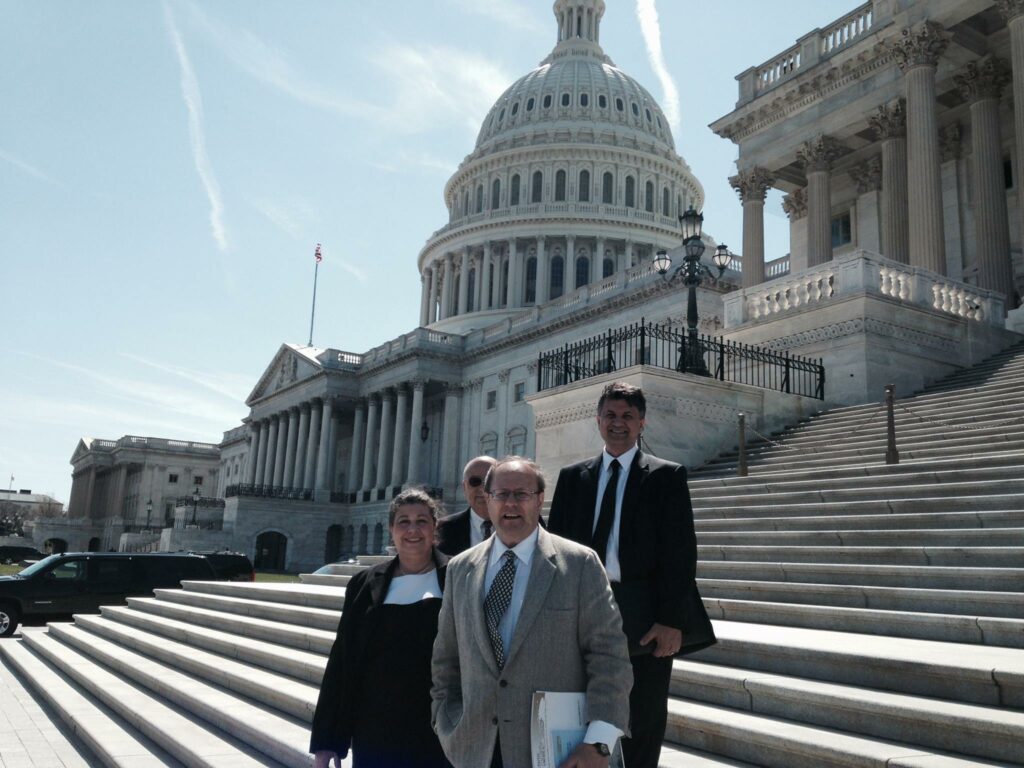It is a widely held opinion by anthropologists, archeologists, sociologists, historians, and other scholars and intellectuals that the natives of all Americas (South, Central, and North) had probably come by a land bridge over the Bering Straits many thousands of years ago when sea around series of island had frozen—numbers range from 7,000 to 70,000 years ago depending on who is interpreting the research findings and data. (It must also be noted that some scholars caution not to leave the sea route out, pointing to the natives of Australia and many South Pacific islands, but same scholars are quick to add that sea route could not have been a major contributor to populating of the Americas.)
Thus, it is safe to assume that most natives of Americas had come from Siberia and Central Asia, areas where hunting and gathering may be challenging at best, if not also scarce to support large populations. Those areas are home to many groups of Turkic nations, tribes, and groups, including but not limited to Kirghiz, Uzbek, Turkmen, Kazakh, Uyghur, Tuva, Hakas, Altay, and Yakut–all of whom also represent the source of Turkish identity in Anatolia today. This connection may help explain many similarities between the Turkics of Asia and Europe on one hand and the natives of Americas on the other: genetically (birth mark that appears at the end of the spine at birth and disappears after a short while that is known among the natives of Arizona natives and Kazakhs of Asia;) linguistically (many common words in Turkic and Native languages like odam=adam=man, ikki=iki=two, etc. 😉 culturally (profound respect to elders, tepee=yurt;) and other aspects.
While we will let the scholars do the research and interpretation on this matter, let us turn our attention to re-discovery of long lost relationships. Here is a press release by the Turkish Coalition of America which may shed some more light on this topic. To learn more about TCA’s work with native Americans including the Hopi Tribe, and other communities, please visit www.tc-america.org.
TCA Promotes Trade Relationship Between Turkey and Hopi Tribe
July 24, 2010 – Los Angeles, CA – On Tuesday, July 20th the Turkish Coalition of America (TCA) facilitated a meeting between the visiting Turkish Trade Minister, Zafer Caglayan, and representatives of the Hopi Tribe, including Ali Cayir, the first Hopi Tribe Representative to Turkey.
During the meeting, Cayir described the benefits of working with the tribes in the United States, which operate as sovereign nations with their own governments that can deal on an equal footing with Turkey in negotiating trade and investment relationships. The Hopi Tribe, whose reservation is in Arizona, hopes to promote increased solar power projects, continued coal extraction, and the development of a major consumer center for the reservation’s residents.
“When TCA began connecting the Hopi and Turkish peoples, we were working to develop completely new relationships. The meeting between the Hopi Tribe and Minister Caglayan represents a giant step forward in tying together the native peoples of the U.S. and Turkey through trade and investment. This is an unprecedented development. TCA is proud to have helped launch this extraordinary relationship,” said TCA President G. Lincoln McCurdy.
Minister Caglayan, meeting with the Tribe for the first time, spoke of the affinity and possible kinship of the Turkish and Native American peoples, based on ancestral migration thousands of years ago, and expressed interest in visiting the Hopi reservation upon his return to the United States in October 2010.
Also in attendance were several commercial representatives of Turkish business interests, who engaged in a discussion of investment and construction opportunities on the reservation. The parties walked away with a plan for the Hopi Tribe to conduct initial feasibility studies and cost-benefit analyses that would justify potential Turkish involvement on the reservation.
Samuel Shingoitewa, Jr., advisor to the Tribe’s chairman, closed the meeting by reiterating the Tribe’s desire to work with Turkey, and expressed his desire for the Hopi Tribe to aggressively expand its relationships with other nations over the next four years.
For years, TCA has promoted the development of relationships between the Turkish peoples and the many ethnic and cultural groups in the United States, including a program to provide scholarships for Native American, African American, Hispanic American and Armenian American students for study abroad in Turkey or the Turkish Republic of Northern Cyprus.
